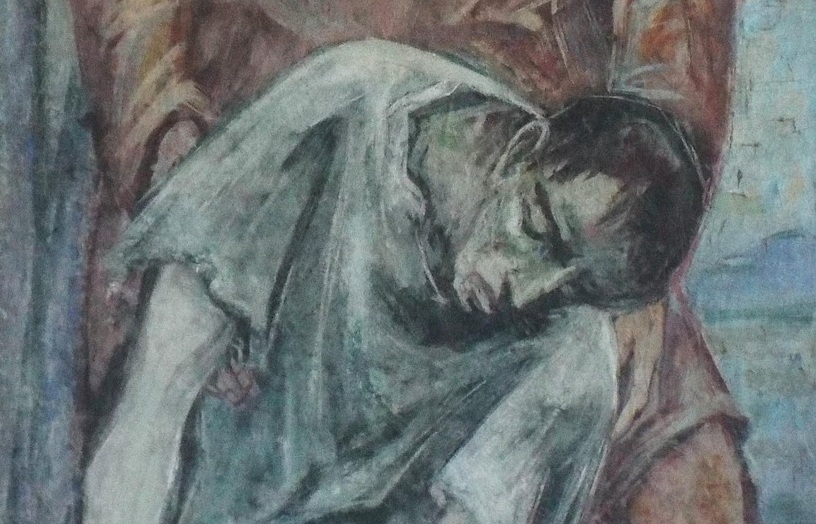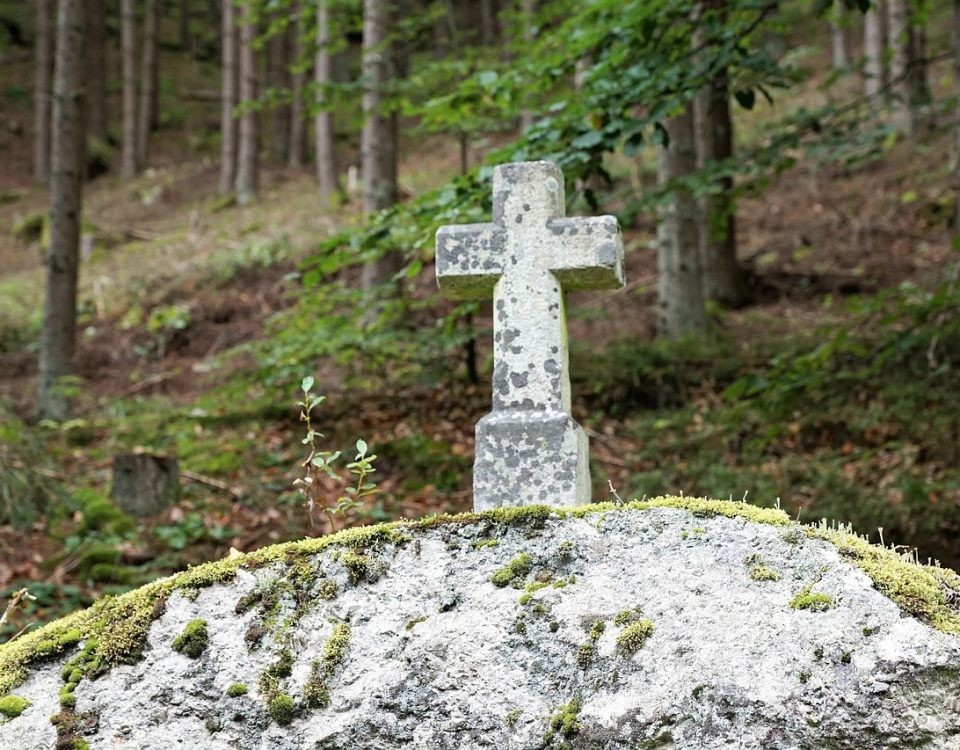Close readers of Luke will recall that the question we hear asked today, the question—“What then shall we do?”—which is found in Luke 3:10, is the same question found in Acts 2:37.
Here in Luke’s Gospel the context is the coming of the Messiah, how to prepare for his coming. In Acts of the Apostles, the context is Pentecost: Peter had just finished preaching, and the word he preached convicted his listeners so deeply that they asked themselves, “Brethren, what shall we do?” The parallel, I think, is deliberate. I think Luke, the author of both sacred texts, wrote it that way on purpose.
For—to cut to the chase—this is the question Luke is saying we should ask ourselves in light of the “good news” of the advent of God—What then shall we do? Luke begins this story of John by belittling the powerful, belittling what we think is powerful and important. “In the fifteenth year of the reign of Tiberius Caesar, Pontius Pilate being governor of Judea”—and so on, not important Luke seems to say—“the word of God came to John.” “Prepare the way of the Lord,” John cries out; that is what’s important, Luke says; never mind Caesar.[1] “Prepare the way of the Lord.” That’s what you should worry about, not what makes first century headlines—or twenty-first century headlines. Once you understand that, then you’ll naturally ask what those people 2,000 years ago asked, and that is, “What then shall we do?” That’s why the people at Pentecost asked the exact same question, because it’s the only question that makes sense once you understand what’s really going on. I mean, if God is on his way, then what on earth are we going to do about that? It’s the only logical question. I mean, if those drones flying over New Jersey are aliens from outer space, what then shall we do? What other questions are you going to ask?
But back to what we know is coming, and that’s God in Christ. The Bible in several places suggests the coming of God is a fearful thing, something that at least should sober us up. As the prophet Amos said, “prepare to meet your God, O Israel.”[2] That wasn’t an invitation to a Christmas party; Amos was announcing a reckoning. The way that frightening, old revival preacher put it, Jonathan Edwards, almost 300 years ago: “let everyone that is out of Christ, now awake and fly from the wrath to come. The wrath of the Almighty God is now undoubtedly hanging over a great part of this congregation,” he ended his sermon.[3] Now, to be clear, that’s Jonathan Edwards speaking, not me; I wouldn’t say that to you; I wouldn’t put it that way. I’m just trying to point out that in the past our ancestors took the coming of Christ quite seriously, that for them it was a convicting thing to think about. They would have understood perhaps better than us the urgency of the question—“What then shall we do?” That is, they wouldn’t have put the question off; they would have noticed the question. They would perhaps have been more serious about it, more aware of what’s at stake.
So, what then shall we do? The answer today is the same it was at the very beginning. The answer to the question, when it was asked at Pentecost, was this: “Repent, and be baptized every one of you in the name of Jesus Christ for the forgiveness of your sins.”[4] That is, conform yourself to Christ in faith and in the mystery of baptism; conform yourself to God in baptism and in the sacraments of the faithful.
But that is not all. There is also the matter of morality and ethics. That is, if you are conformed to Christ, your life should be different. You should change; you should struggle to change—from the old Adam into the new Adam, into a new person living in the way of charity. That’s what John the Baptist was saying. To tax collectors: “Collect no more than is appointed you.” To soldiers: “Rob no one by violence or by false accusation.”[5] To prepare for the coming of the Messiah, you and I must change our ways; that’s the lesson. We must learn morality and become moral people; we at least must repent and struggle; we must be broken people who at least try to live morally different lives, not conformed to this age.[6]
But what does that look like? Here I will simply leave you before the altar of truth, close to the sacraments I’ve been talking about, and with the humble suggestion that holy mother Church does indeed teach the truth in morals as well as in faith. But we must listen. We must hear the call to change, which is often difficult.
It is interesting, you know, how in the very next verse of this passage from Luke it says that Herod put John the Baptist in prison; he must not have liked what he heard. Sometimes I think I’m like Herod; I imprison the prophets—out of sight, out of mind. Sometimes I don’t listen to the truth, to the Church. Sometimes I do that, we do that, because it’s easier than change. But then joy is something else. Amen.
[1] Luke 3:1-4
[2] Amos 4:12
[3] Jonathan Edwards, Sinners in the Hands of an Angry God (8 July 1741)
[4] Acts 2:38
[5] Luke 3:12-14
[6] Romans 12:2
© 2024 Rev. Joshua J. Whitfield










